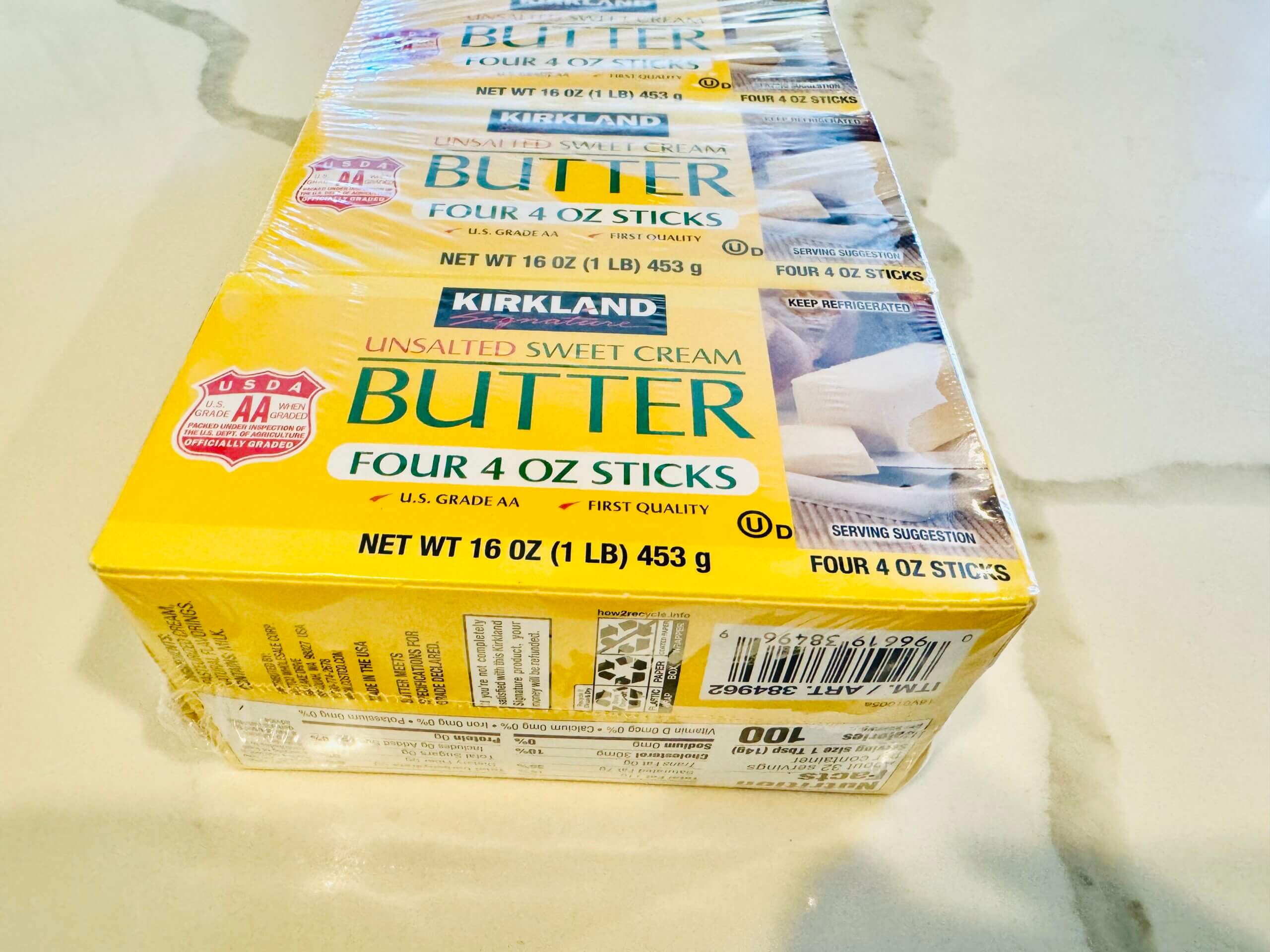In a world where millions of people go hungry every day, it painfully saddens me to see the vast amount of food that ends up in the trash in the United States— often for reasons that have nothing to do with its safety or quality.
While I understand that recalls are sometimes important for protecting people from contaminated or unsafe food, they become ridiculous and totally unnecessary when they occur due to minor labeling errors, misunderstandings, or non-critical issues.
This results in perfectly good food being discarded, contributing to environmental harm, economic losses, and a missed opportunity to feed those in need.
Here’s why I bring this up, and it makes me angry and sad: On October 11, 2024, the FDA issued a recall for Costco Kirkland Signature Unsalted Sweet Cream Butter and Kirkland Signature Salted Sweet Cream Butter.
The recall was for 1,300 cases containing 79,200 pounds of butter just because the ingredient list did not include the phrase “contains milk.”
Here is the actual recall reason issued by the FDA:
“Butter lists cream, but may be missing the Contains Milk statement.”
https://www.accessdata.fda.gov/scripts/ires/index.cfm?Event=95556
The Growing Scale of Food Waste
According to the Food and Agriculture Organization (FAO), around one-third of all global food is wasted, amounting to approximately 1.3 billion tons every year. (“Food Loss and Waste,” 2019)
This waste happens at every level of the food supply chain, from farms to grocery stores and even in our homes.
In the U.S. alone, food waste is thought to account for about 30-40% of the food supply.
It causes about $218 billion in losses annually and significantly strains environmental resources, including water, energy, and labor. (“Why Should We Care about Food Waste?,” 2017)
Everyone understands that some food waste is inevitable, but much of it is preventable — and unnecessary food recalls are a significant contributor to this global problem.
When food products are pulled from store shelves due to minor issues like mislabeling or missing ingredients (such as omitting something considered “obvious,” like, in this case, milk), perfectly safe and edible food is destroyed for no good reason.
This creates a chain reaction: the food is discarded, often not donated or repurposed, and the resources used to produce it — from raw materials to transportation — are also wasted.
What Am I Doing With The Recalled Kirkland Butter?
I recently bought the Kirkland Signature Unsalted Sweet Cream Butter because I use it a lot for baking.
I will not throw it out or donate it simply because the manufacturer forgot to state that it is a 'dairy' product on the label.
The FDA statement shows no food safety or health hazard issues in the recall, so we know that the recall is only for labeling errors.
As far as we know, no allergens or food defects are involved.
The FDA should really consider making recall statements based on individual cases and look at the overall impact of recalls like these on the effect it would have on food wastage and unnecessary system overload.




